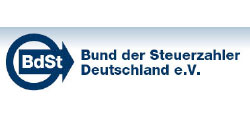New OECD Report: Taxing Wages 2017
Taxing Wages 2017 measures the level of personal income tax and social security contributions in each OECD country by calculating the ‘tax wedge’ – the total taxes on labour income paid by employees and employers, minus family benefits received, as a percentage of the labour costs of the employer. The tax wedge is calculated for a range of different family types and at different income levels.
The tax wedge on the income of the average worker decreased slightly, to 36%, in 2016. Last year’s decline follows a multi-year trend, partially reversing tax wedge increases reported in the years immediately following the global economic crisis.
The decrease in the average tax wedge seen since 2013 is partly explained by reforms in some countries to reduce taxes on labour income. For example, in 2016 Belgium and Austria both experienced significant reductions in their tax wedges as a result of labour tax reforms.
Although the OECD average tax wedge decreased slightly in 2016 relative to 2015, the tax wedge actually increased slightly in 20 OECD countries, while it declined in 14 others. Most of the changes were driven by changes in personal income tax.
Taxing Wages provides unique cross-country comparative data on the amounts of personal income taxes, social security contributions, payroll taxes and cash benefits for eight family-types, which differ by income level and household composition. It also presents the resulting average and marginal tax wedge for these family types. Average tax wedges show the part of gross wage earnings or labour costs which are taken in personal income taxes (before and after cash benefits), social security contributions and payroll taxes. Marginal tax wedges show the part of an increase of gross earnings or labour costs that is paid in these levies.
The 2017 edition of Taxing Wages contains a special feature examining the impact of tax on the incentives for workers to invest in their skills. For a typical worker undertaking a short course of training, the combined impact of personal income taxes and employee social security contributions reduces the incentive to invest in skills training, lowering the value of a skills investment by 24.9% on average across the OECD.















































